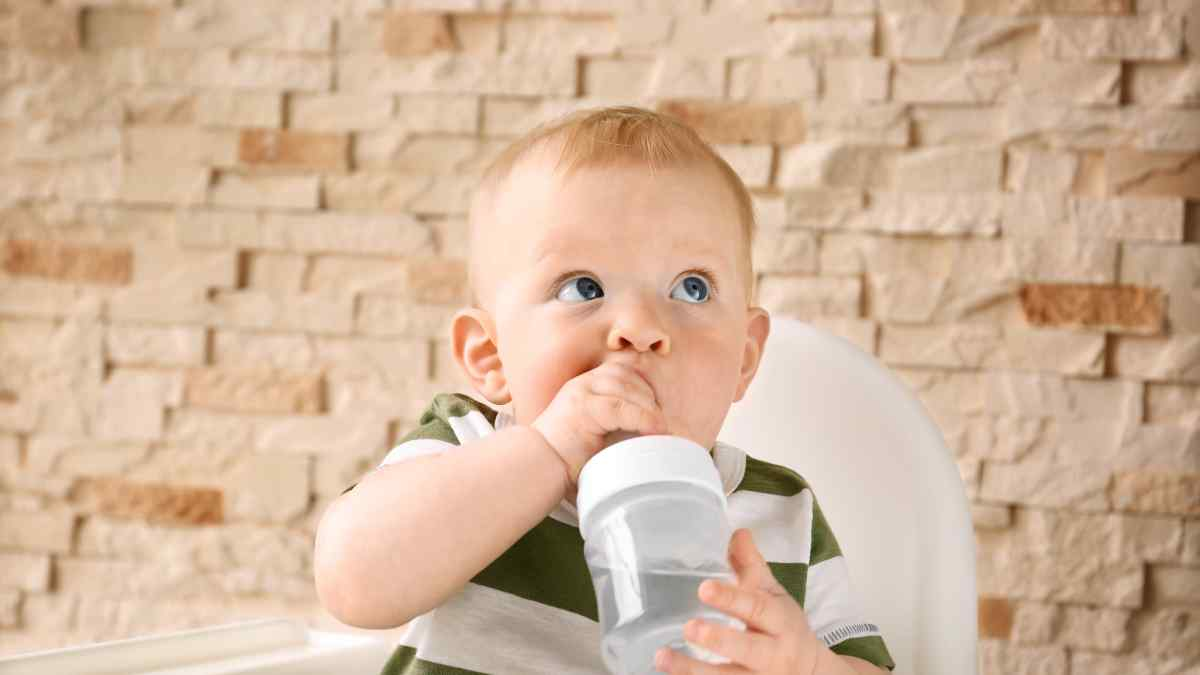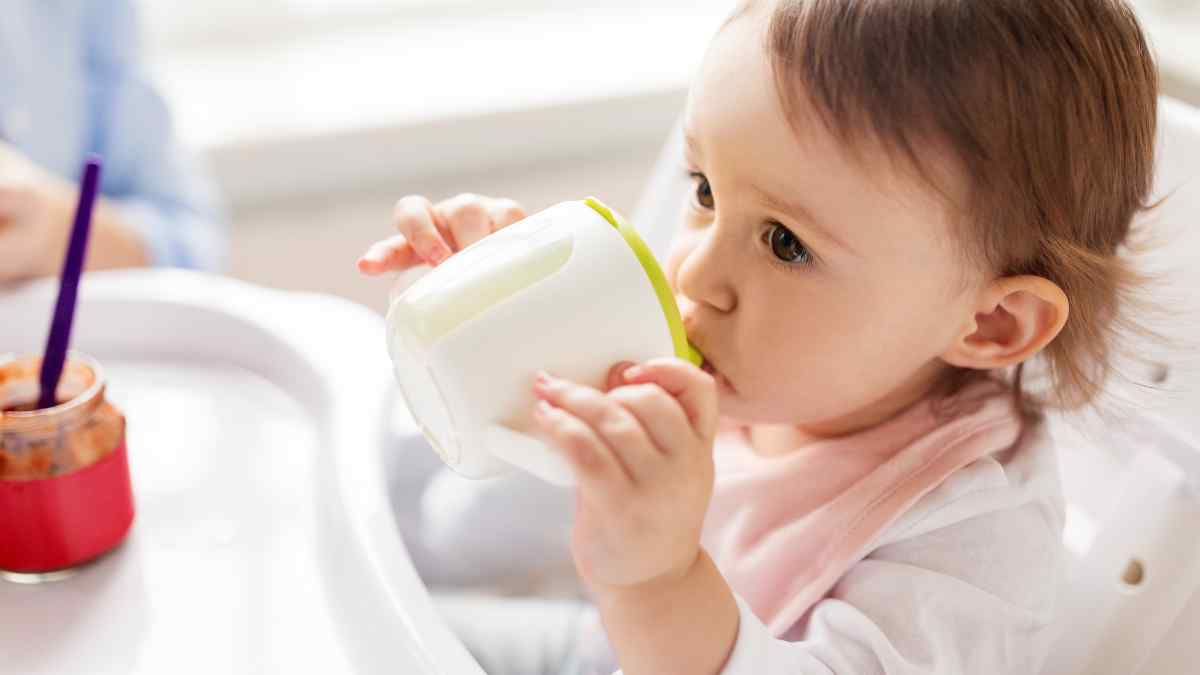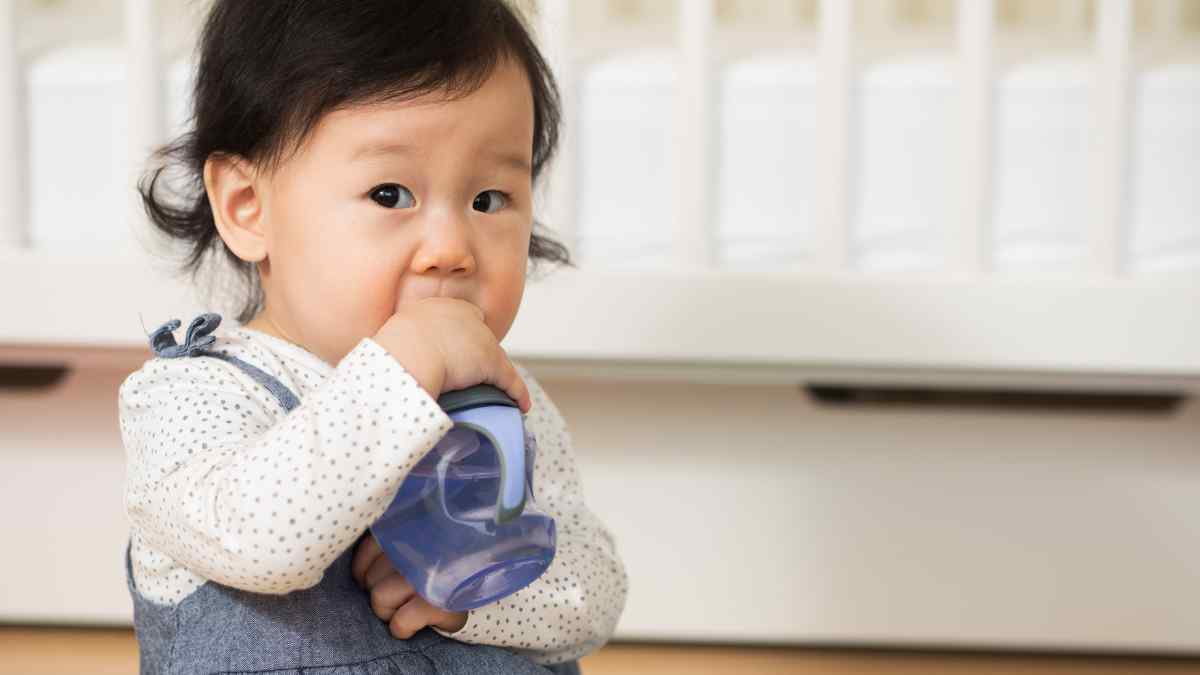Hydration is the cornerstone of health, irrespective of age. For our littlest ones, maintaining the right balance of fluids is not just a matter of wellness but of utmost safety. Babies, with their delicate systems, are especially vulnerable to dehydration, and in certain situations, commercial rehydration solutions might not be readily available, or parents may seek more natural alternatives.
This article delves into the world of homemade hydration solutions for babies, offering practical recipes for parents and caregivers. However, it’s crucial to remember that while these solutions can be handy, they are not a one-size-fits-all remedy. Always consult with a pediatrician before introducing anything new to your baby’s diet, ensuring their health and safety are never compromised. Let’s dive in and explore these home-based remedies that might just be a lifesaver in your parenting toolkit!

Understanding Dehydration in Babies
Dehydration in babies is a serious concern, and understanding its signs, causes, and the need for timely intervention can make all the difference. When oral rehydration salts, commonly referred to as ORS, are not readily available, a simple mix of salt and sugar in water can act as a life-saving oral rehydration solution. This homemade mixture, which is often considered an alternative to Pedialyte, can be an effective homemade remedy in emergencies.
Signs of Dehydration
If your baby shows signs such as fewer wet diapers, sunken eyes, lethargy, or a noticeable absence of tears when crying, they could be dehydrated. It’s essential to recognize these signs early on to ensure timely treatment.
Causes of Dehydration
Dehydration can arise from various factors including:
– Diarrhea and vomiting: When watery diarrhea strikes or a bout of vomiting or diarrhea persists, babies lose body fluids rapidly.
– Fever: High temperatures can lead to excessive sweating and increased water loss.
– Reduced fluid intake: This could be due to sickness or refusal to drink.
– Food poisoning: This can lead to vomiting and diarrhea, causing rapid fluid loss.
The Criticality of Prompt Treatment
Rehydration is vital. While commercial solutions like Pedialyte are available, there are times when an effective homemade ORS drink can be of help.
Making a Homemade ORS Solution
1. In a clean container, add 1 liter (or 4 cups) of drinking water.
2. Mix in 1/2 tsp salt (preferably pink Himalayan sea salt for its trace minerals) and 2 tablespoons of organic sugar. If you’re looking for an alternative to refined sugar, organic honey or maple syrup can be used. However, avoid using too much sugar as it can worsen the dehydration.
3. Ensure the sugar and salt dissolve completely in the water. This mix, while seeming simple, can help maintain the electrolyte balance in babies, much like how commercial solutions such as Pedialyte function.
4. For a little variation, non-sweetened mashed fruit can be added, or a little plain grape juice.
While these solutions can help, always remember the importance of cleanliness. Always wash your hands before preparing the ORS solution. If dehydration persists or seems severe, seek medical attention immediately. In situations of vomiting or diarrhea, especially, it is essential to ensure that the sick child is continually monitored.
As a note of caution, while homemade solutions are helpful, they should not be the only fluid given. Continue feeding children breast milk or solid food, and always ensure the homemade version is fresh. Avoid sports drinks as they contain artificial sweeteners that are not suitable for babies. Moreover, always be careful with the measurements. Too much salt or sugar can lead to electrolyte imbalances.

Basics of a Hydration Solution
Having explored the intricacies of dehydration in babies in the previous column, it becomes imperative to understand the foundational elements of a hydration solution. At the heart of this discussion lies the delicate balance of electrolytes and sugar and the realization that plain drinking water is sometimes insufficient for complete rehydration.
The Right Balance of Electrolytes and Sugar
Oral rehydration solutions (ORS) are primarily designed to replenish lost body fluids and vital electrolytes, ensuring a stable internal environment for our bodies. This is achieved by a specific balance of sugar and salt. The sugar aids in the absorption of salt, and conversely, the salt helps in the uptake of sugar, ensuring that both these essential components are effectively utilized by the body.
Salt, or sodium chloride, in the solution restores the sodium levels in the body. On the other hand, some ORS solutions also include potassium chloride, which is vital in replenishing potassium lost during episodes like diarrhea. But why not just sugar water? While sugar helps in the absorption process, too much sugar without the correct balance of electrolytes can worsen dehydration. Pink Himalayan salt is often preferred for these solutions due to its trace minerals, though table salt can also be used.
Why Plain Water Isn’t Always Enough
It’s a common misconception that giving a sick child just drinking water will effectively combat dehydration. The truth is, in cases of severe dehydration caused by excessive loss of body fluids from diarrhea or vomiting, plain water lacks the necessary electrolytes. It might also dilute the few essential minerals remaining in the body, further complicating the situation.
Moreover, drinking too much water without the accompanying balance of sugar and salt doesn’t help in the absorption of fluids in the intestines. This is where the magic of oral rehydration salts comes into play. When dissolved in water, they form an ORS drink that’s scientifically designed to aid absorption and maintain the electrolyte balance.
For a simple homemade ORS:
1. Take 1 liter of clean drinking water.
2. Add 1/2 tsp of salt (pink Himalayan salt or table salt) and 2 tablespoons of sugar (white sugar or table sugar).
3. Ensure the salt and sugar dissolve completely.
While coconut water or tender coconut water and orange juice can serve as natural hydration solutions due to their innate electrolyte content, it’s important to ensure they are fresh and uncontaminated. And always remember to wash your hands before preparing any solution to ensure cleanliness.
For parents and caregivers interested in alternative hydration solutions like homemade Pedialyte or homemade Pedialyte popsicles, feel free to provide an email address for more detailed recipes and instructions.
Safety Precautions
Building on our understanding of the fundamental components of a hydration solution, it becomes paramount to ensure the safety and well-being of our little ones. When dealing with oral rehydration solutions, especially homemade ones, certain precautions can make the difference between effective rehydration and potential health risks.

Using Boiled or Distilled Water
The foundation of any oral rehydration solution is the water used. Always ensure that you use boiled or distilled water. Boiling helps in eliminating any pathogens that might be present, especially in areas where water quality might be questionable. If you’re using 1 cup, 2 cups, or more, always ensure that the water is cooled to room temperature before adding oral rehydration salts or the salt and sugar mix.
Being Cautious with the Amount of Sugar and Salt
It’s crucial to adhere to the salt instructions provided. As we discussed in the basics of a hydration solution, the balance between salt and sugar is critical in making an effective ORS solution. Too much salt can be harmful, and an imbalance can lead to further dehydration or other complications. While using white sugar, measure it carefully. If you’re preparing a 1-liter solution, typically a mix of 1/2 cup of sugar and appropriate salt measures work well.
Importance of Cleanliness
When preparing any solution for consumption, especially for babies, ensure a clean environment. Always wash your hands before handling ingredients. Ensure that the container used for mixing and storage is cleaned and sterilized. If you’re storing a fresh solution, it should be consumed within 24 hours to ensure its effectiveness and safety.
Monitoring Baby’s Reaction
It’s essential to keep a close watch on how your baby reacts after consuming the ORS drink. While oral rehydration solutions like homemade Pedialyte or sugar water are generally safe, every child is different. If you notice any adverse effects or if the baby seems more uncomfortable, discontinue its use and consult a pediatrician immediately.
Never Replace Regular Feedings or Meals:
These solutions are meant to rehydrate and maintain electrolyte balance, especially in cases of severe dehydration. They are not meal replacements. Continue with regular feedings of breast milk, rice cereal, apple juice, or other appropriate foods for the baby’s age. ORS solutions should be an addition to, not a replacement for, regular meals.

Conclusion
As parents and caregivers, our prime duty is to ensure the health and safety of our little ones. Dehydration, although a common concern, can have serious implications, especially in babies. While commercial solutions provide a ready-made remedy, there is merit in understanding and sometimes opting for homemade hydration solutions, especially when caught unprepared or seeking a more natural remedy.
However, the emphasis should always be on safety, precision, and monitoring. Homemade solutions, while beneficial, need to be prepared with caution, adhering to exact measurements and maintaining cleanliness. The objective is to replenish lost fluids and vital electrolytes without introducing any potential harm.
In conclusion, while venturing into the realm of homemade hydration solutions for babies, it’s essential to walk the path with knowledge, care, and vigilance. And always remember, when in doubt or faced with a severe situation, consulting with a pediatrician remains the gold standard. Our babies’ health is invaluable, and every step taken should reflect our commitment to their well-being.
Did this article help you? Please let us know by commenting below. If you have any questions or concerns, don’t hesitate to ask.



